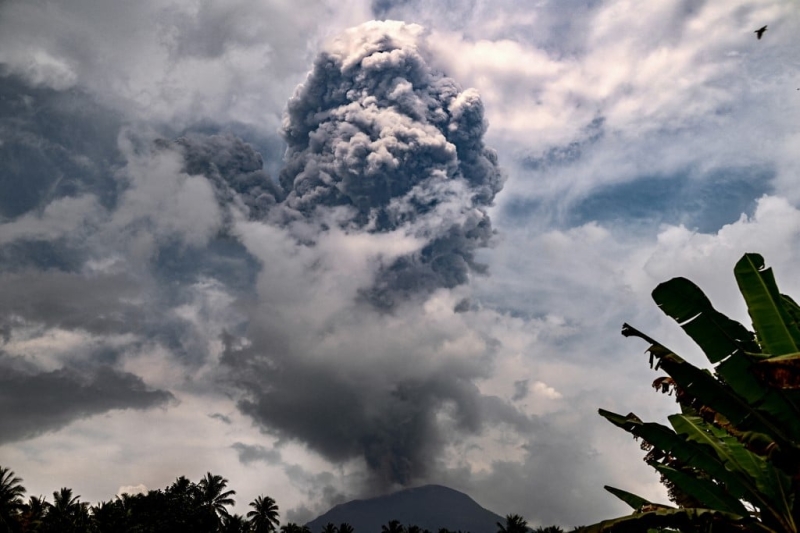- EU’s Ocean Leadership Faces Test as Treaty Clock Ticks |
- OIC Condemns Ecuador’s Opening of a Diplomatic Office in Al-Quds |
- No escape, death follows families in Gaza wherever they go |
- Armed forces' magistracy powers extended by 60 days |
- Hamid's departure: Body formed, Kishoreganj SP withdrawn |
Indonesia volcano erupts, spews ash 7 km into the sky

A volcano in eastern Indonesia erupted on Sunday, spewing an ash cloud seven kilometres into the sky as authorities warned residents to shelter indoors.
It is the latest of around 100 eruptions from the volcano since early this year.
Mount Ibu, located on Halmahera island in North Maluku province, erupted at 12.45 pm (0345 GMT), sending thick clouds of ash into the air, Geology Agency head Muhammad Wafid said in a statement.
The eruption from the volcano -- which has been at the highest alert level of the country's four-tiered system since mid-May -- lasted for 6 minutes and 13 seconds, he added.
Ash was carried by the wind towards the volcano's monitoring station and an evacuation shelter next to it, but "there was no panic" among the evacuees, National Disaster Mitigation Agency (BNPB) spokesman Abdul Muhari said in a statement Sunday.
"People have been advised to avoid outdoor activities and shelter indoors while the ash mixed with sand is still raining down," Abdul said.
He urged residents to use masks to prevent respiratory problems.
After the volcano was raised to the highest alert level on May 16, authorities warned locals and tourists not to enter an exclusion zone between four and seven kilometres (2.5-4.3 miles) from the volcano's crater, reports BSS.
Authorities began evacuating residents not long after, with more than 2,500 people moved to shelters as of Sunday, according to local disaster mitigation agency data.
Ibu is one of Indonesia's most active volcanoes, erupting more than 21,000 times last year.
According to the Geology Agency, Ibu recorded an average of 58 eruptions per day in 2023.
Indonesia, a vast archipelago nation, experiences frequent seismic and volcanic activity due to its position on the Pacific "Ring of Fire".
Last month, Mount Ruang in North Sulawesi province erupted more than half a dozen times, forcing thousands of residents of nearby islands to evacuate.

